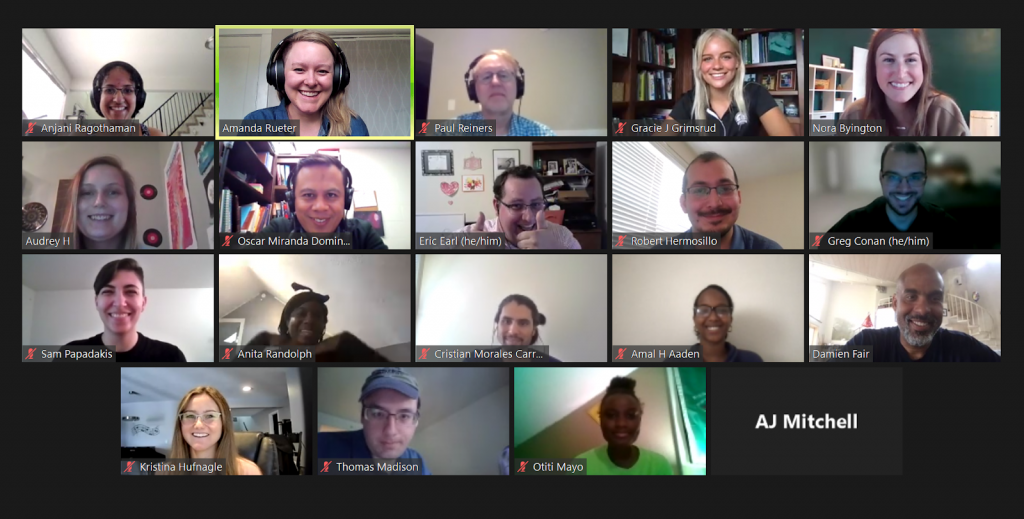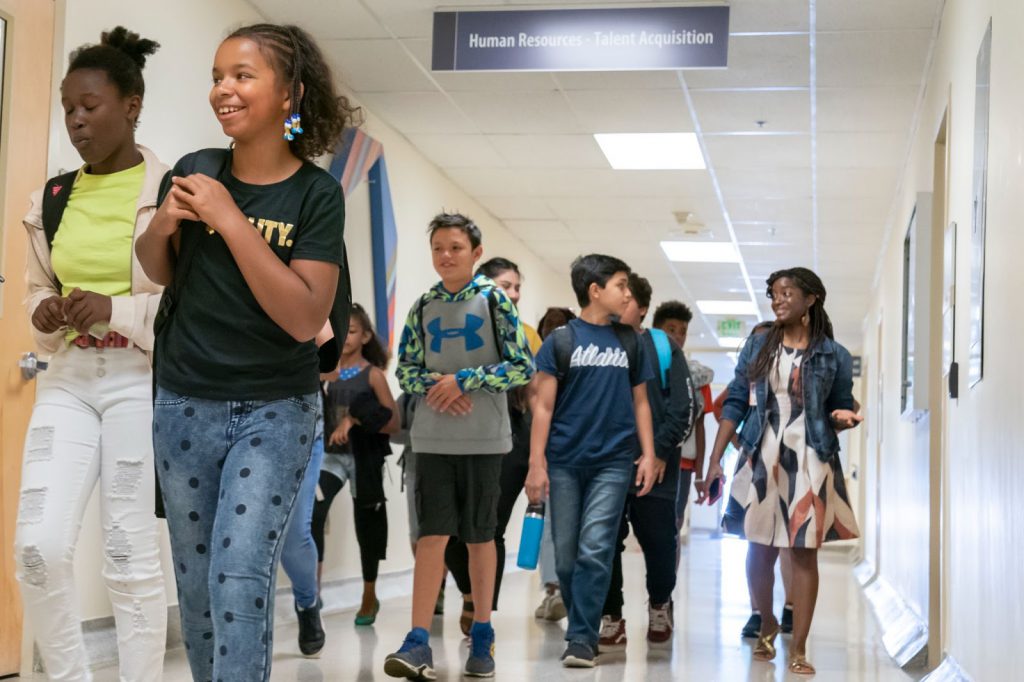
Who are we?
The Developmental Cognition and Neuroimaging Lab (DCAN Lab) is housed at the Masonic Institute of the Developing Brain and is led by Damien Fair, PA-C, PhD, along with three other PIs and laboratories, Oscar Miranda-Dominguez, Ph.D., Anita Randolph Ph.D., and Eric Feczko, Ph.D. The lab is an interdisciplinary team of researchers trying to understand the following basic questions:
- How does the brain work across development?
- How do brain-based disorders (like Autism Spectrum Disorder and ADHD) develop and progress?
- What are some creative ways we can advance the treatment of mental health disorders?
- How can we engage underrepresented communities in academic research?
At its core, DCAN Lab emphasizes the importance of engagement and promotion of diversity. It is also a research and training hub for high schoolers, undergraduates, graduate students, post-doctoral fellows, and faculty aimed at learning about cutting edge neuroscience, refining existing neuroimaging methods, and exploring innovative and translational ways to use new technologies.
How have we engaged the community in brain education?
Anita Randolph has been the director of Youth Engaged in Science (YES!) since 2019. YES! aims to end educational and health disparities in underrepresented minority (URM) communities. To date, over 10,000 people have engaged with YES! programs. One of DCAN’s approaches to engage youth from underrepresented communities is by offering enriching science and educational programs to middle and high school students, as well as the broader community. Some examples of these offerings include: tours of clinical and research centers, tours of campus and lab spaces, science fairs, brain-in-the-box, and leading information sessions at community centers.

Much of the engagement to date took place prior to the Coronavirus pandemic. We look forward to working with individuals at MIDB and ICD to continue to expand our reach in the Twin Cities community in the future.
How do we engage underrepresented communities in academic medicine and research?
Less than 2% of scientists with PhDs in the biological sciences are African American, even though African Americans make up 14% of the population. Faculty in DCAN Lab hope to increase this percentage by actively engaging with the following programs: the Life Sciences Summer Undergraduate Research Program, the Louis Stokes North Star STEM Alliance (LS-NSS), and by providing undergraduate students and high school students with research internships to learn more about how academic research works.
How are undergraduate students involved in our research?
When a student joins the lab, we first ask them what they are most interested in learning and gaining from the experience. They are given opportunities to engage in clinical data collection, computational studies, and coding projects. Every student is given time with mentors to learn more about how neuroscience research works. At the end of their internships (usually a 1 year commitment), students are encouraged to present their research findings at a symposium or conference.
If you (or someone you know) might be interested in an undergraduate position with us at DCAN Lab, please note that we will be sending out a call for applicants later this summer (July 2021). To be added to that mailing list, please email dcanlab@umn.edu with the subject “interest in undergraduate research position.”



